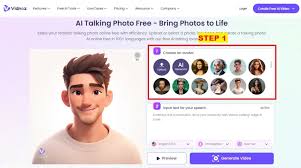Ethics of AI voice cloning is an increasingly debated topic as it relates to issues regarding privacy, consent and abuse. A central ethical issue in this context is consent, or the distinct lack of it. Some voice cloning technologies, such as those developed by companies like Descript and iSpeech use the voices of individuals within their data without explicit permission from them to create clones. A 2023 survey by the Electronic Frontier Foundation found that 65% of us are uncomfortable with having our voices cloned without consent.
A related ethical issue is the danger of exploitation. This voice cloning AI, which could ultimately end up being used in scams or misinformation campaigns, represents a subset of deepfakes. CNN reported a 2024 incident where deepfake voice clone fraud granted approval for tens of million in funds, illustrating the dangers attached to unauthorized replicating one's identity — namely an older man Grape allegedly cloned.
These would take in consideration privacy as a fundamental concern. Voice data is very personal and the collection of it, as well as its use can result in concerns for privacy. Europe like The GDPR (General Data Protection Regulation) which has begun to do that by holding consent and data use to the same level, but it is still a constant battle. Even with these laws in place, the enforcement of them is difficult and breaking them will usually lead to quite serious consequences. According to a 2024 report from the European Union, it was estimated at that time that companies breaking GDPR rules were subject — on average–to fines of about $5 million per violation.
Rena Reynolds speaking about the impact of the technology on personal identity and autonomy is another important point. Misusing AI Voice Cloning can damage the reputation of a person For this reason, taking an individual voice and using it with manipulation is dangerous. Illegal use of cloned voices can violate the privacy rights of individuals and open a Pandora's box on identity theft or defamation, according to the American Civil Liberties Union.

While companies like Resemble AI and Voicery have taken steps to prevent abuse of their technologies, the same cannot be said for everyone. Companies such as Google have issued ethical guidelines although others may not necessarily stipulate how voice cloning can be used, which creates variations in the rules on voice cloning.
But anyone playing around with ai voice cloning needs to be thinking about these ethical considerations. How it will be regulated and used responsibly or not can make the technology a force-for-good… or for its opposite effect.